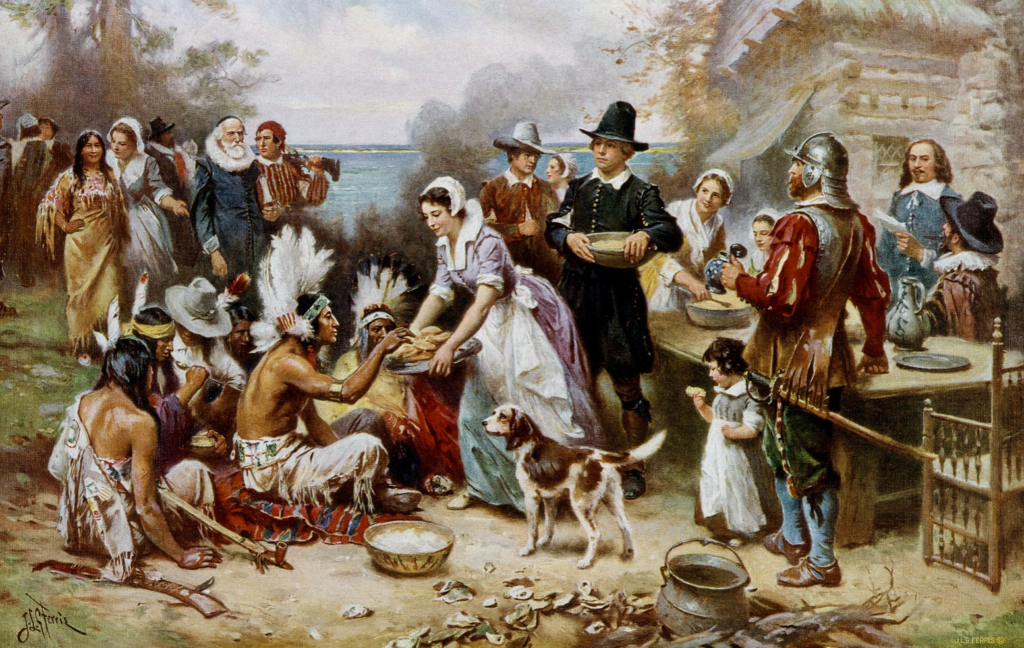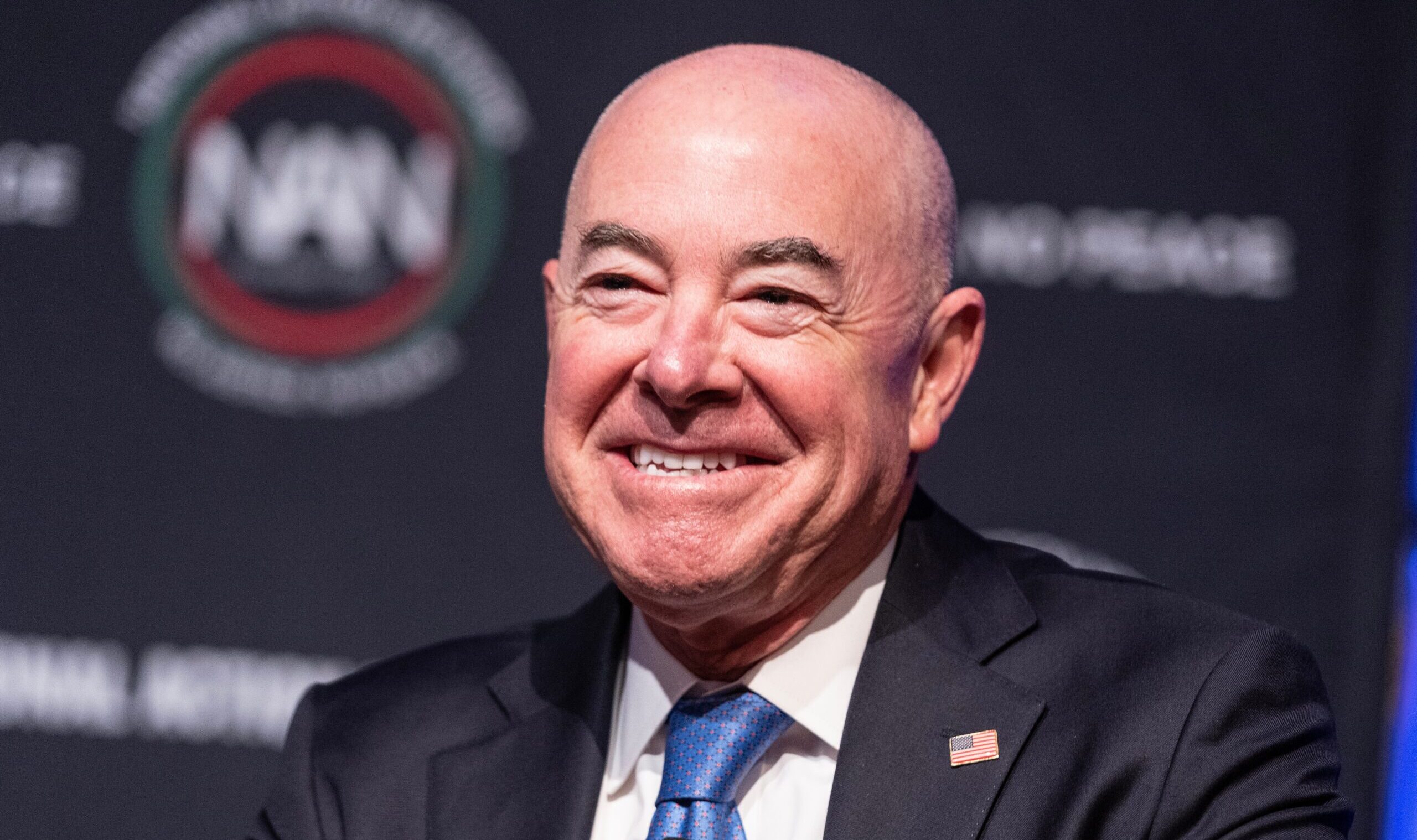The New York Times has a novel idea for how to spend your Thanksgiving. Rather than share it with slightly racist relatives in remote places, eating a feast that is neither vegan nor gluten free, you can eliminate stress by hopping aboard a cruise ship and sailing away on cocktails and tropical climates with friends. Cleanup duty and crazy uncles sold separately. It’s an amusing proposition, not least because the first Thanksgiving was, in many respects, a celebration of getting off of a boat.
The Puritan Separatists who founded Plymouth Colony in 1620 had endured much hardship prior to arriving in America, suffering they willingly chose in exchange for the exercise of their faith in God. It would be hard to overemphasize this: a 10-year exile in Holland, during which the influence of the secular country on their young children was strong. Another few years of saving and seeking sponsorship before they could afford passage overseas to the Americas. The leaky Speedwell incident, after which the 120 passengers had to be whittled down to a meager 102 to fit aboard the Mayflower. Two deaths. By the time they arrived at Plymouth, it was already icy November, and most were sick and battling scurvy.
The winter that followed was, as most of us learned in eighth grade history, morbid. How much so? The 101 Pilgrims—less the two who died aboard the Mayflower, plus the birth of Oceanus Hopkins—were diminished to 52 by disease, with as many as two or three dying daily during the first two months on land. The rest would never see the new colony, and church, they had prayed to establish for so many years.
And yet, amid such hardship there were clear signs of God’s providence, signs these Christian reformers would not have missed. In fact, there is much documentation to show they did not miss it. John Howland survived being blown overboard the Mayflower, catching hold of a topsail just in time to be reeled back onto the ship. Shortly after wading ashore at Plymouth, Puritan expeditionaries found a stash of Native American corn, seed that would begin to feed them the following year. The natives themselves may have been the greatest gift of Providence, particularly Squanto, an English-speaking native and a Christian, who acted as ambassador and translator between the two camps.
William Bradford, the second governor of the Plymouth colony, writing his history Of Plymouth Plantation years after the first Thanksgiving, compared the Puritans’ plight to even earlier Christian pilgrims: the descendants of Abraham, who believed by faith and yet died before they received the promises of God. His reference to Hebrews 11 is often noted today because it is in the same passage in which the word “pilgrim” was first used to describe the Puritan Separatists. But Bradford’s point here is far more striking than his use of that word.
He inscribes at the front of the book:
Though I am growne aged, yet I have had a longing desire, to see with my own eyes, something of that most ancient language, and holy tongue, in which the Law, and oracles of God were write; and in which God, and angels, spake to the holy patriarks, of old time; and what names were given to things, from the creation. And though I canot attaine to much herein, yet I am refreshed, to have seen some glimpse hereof; (as Moses saw the Land of canan afarr of) my aime and desire is, to see how the words, and phrases lye in the holy texte; and to dicerne somewhat of the same for my owne contente.
Like the Old Testament patriarchs, even those Puritans who made it to the first Thanksgiving would not yet see the fruit of their faith. Like Moses, Bradford longs to walk into the promised land, even saying of himself that he has seen a “glimpse” of Canaan, but remains on the far side of the mountain.
The feast of Thanksgiving is worth remarking on for its own sake, as the first feast day at the founding of our nation, an explicitly Christian celebration. But as we examine these roots, we cannot come away from it without eyeing the manner in which it was celebrated. These were men and women who saw their struggle through the lens of eternity, their sacrifice as a seed of faith that posterity would someday harvest. And can it be that we should gain that harvest, we who are numerous as grains of sand, but have lost the seed?
On the day after our national feast day, it may seem an odd time to be celebrating. The market is down, inflation is up, midterm election results were disappointing, and no relief from the progressive onslaught against our national morality seems visible. The past year has been, for many, a season of famine—a time to tighten the belt, not to loosen it. But to think this way is to miss the point of Thanksgiving.
Subscribe Today
Get weekly emails in your inbox
The spirit of Thanksgiving is that of gratitude, not only in seasons of abundance but also in seasons of want, despair, even death. Our pilgrim forefathers began this American tradition after a winter of unbelievable hardship. Staring down the barrel of another brutal New England winter, the Pilgrims did not put their trust in their harvest surplus, but in the one who made their seeds grow.
Not two years later, in 1623, the Pilgrims spent the holiday in prayer again, asking for relief from a lengthy drought that threatened to recreate the winter of 1620. Edward Winslow, William Bradford’s trusted assistant, recorded that Thanksgiving as a day “set apart, a solemn day of humiliation, to seek the Lord by humble and fervent prayer, in this great distress.” They understood and believed that their present sufferings would culminate in a future glory. And they rejoiced, counting all as joy, in the season of want.
We come from bold stock. Ours is a tradition of rejoicing in suffering. And while we might fear for our own posterity, we can be assured that those who sow generously will reap generously—even if it is several generations from now.










